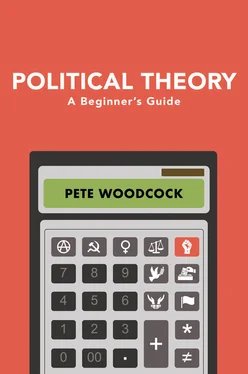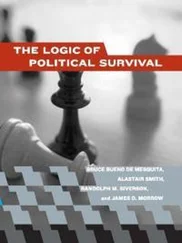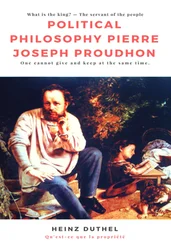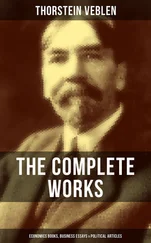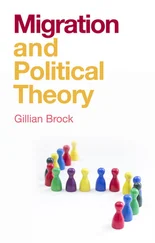In The Apology , an account of the trial of Socrates, where he was being prosecuted on the charge of corrupting the youth of Athens, written by his devoted student Plato, Socrates outlines why it would be no good for them to exile him from Athens. Socrates was a controversial figure who questioned many of the religious and political beliefs that were dominant in the ancient Greek democracy. He philosophized on the street, gained adherents and enemies alike, and asked searching questions about the nature of virtue. He argued that if exiled he would just continue doing precisely that which he had done hitherto in another place:
Perhaps someone may say, ‘But surely, Socrates, after you have left us you can spend the rest of your life in quietly minding your own business.’ This is the hardest thing of all to make some of you understand. If I say that this would be disobedience to God, and that is why I cannot ‘mind my own business’, you will not believe me – you’ll think I’m pulling your leg. If on the other hand I tell you that to let no day pass without discussing goodness and all the other subjects about which you hear me talking and examining both myself and others is the very best thing that a man can do, and that life without this sort of examination is not worth living, you will be even less inclined to believe me. (Plato, 1993: 63, my emphasis)
Socrates is saying here that ‘discussing goodness’ is what we should all be doing every day, and, if we do not do this, we are wasting our lives. Those of us who get up, go to work, go home, watch TV, go to the pub, then go to sleep without thinking about, or better yet discussing with our peers, the nature of justice and politics, are not really living lives that are meaningful in any way. Discussing the kind of issues that are in this book is what makes life worth living. Consider this, when you attempt the activities throughout this book (especially if you do them with friends), you are not just testing your knowledge, or providing yourself with an aidemémoire , you are living a meaningful life for Socrates.
The unexamined life is not worth living for Socrates. We should, on a daily basis, question the nature of justice and morality, and we should live our lives according to our conclusions.
Socrates developed what has become known as the Socratic method as a way to examine concepts and beliefs; you can see this method at work in any of the Socratic dialogues written by Plato, and his use of him in The Republic . The Socratic method involved Socrates cross-examining his interlocutor, generally asking for a definition, then perhaps another example. If you are studying at college at the moment, you may have witnessed the Socratic method from your tutor without knowing it. Its purpose was to bring clarity of definitions and concepts in a search for truth, but often Socrates would try to show how the definitions and additional examples his colleague raised showed how their original assertion was false. As well as illuminating, they could sometimes destroy.
Socrates often tried to show how beliefs and contentions held by those he was talking to were in fact false. Nothing was worse for Socrates than claiming to know something which you did not know, or thinking you knew a lot when you did not. This is known as the Socratic irony, that the wisest people realize that they know nothing. Acceptance of the world of things which one does not know is a virtue for Socrates. He is not, however, defending ignorance here; far from it. What he is attacking is the pomposity and sophistry of those who claim to know more than they do. This is a political point, as he thought that in Athenian democracy, too much power was given to those who either knew nothing, or knew less than they claimed to know.
In response to this, Socrates developed the Craft Analogy. Politics should be seen as analogous to crafts. If your car broke down this morning, you would not take a vote amongst your friends about how to fix it; you would take it to a mechanic who is an expert in fixing cars. Likewise, if your mobile phone died, you would not necessarily canvass opinion from all and sundry as to how to fix it; you would take it to a specialist. So it is with the leadership of the state; it should be left to those with the most skill in that particular craft, people like Socrates, rather than being in the hands of everyone in a democracy. Plato would develop this point further in The Republic , but it is obviously undemocratic; not everyone has the skill to lead for Socrates, not everyone questions the nature of justice and leads an examined life, qualities needed as a minimum for leadership.
Activity 1.Please attempt the tasks below:
1 When was the last time you had a philosophical or political discussion with your friends or family?
2 What would Socrates think of your response to task (1)?
3 What did Socrates mean by the Craft Analogy? What do you think of it?
Niccolò Machiavelli was, prior to his writing career, a practising politician. In 1498 he was appointed Second Chancellor to the Florentine republic; roughly equivalent to posts such as Secretary of State in the United States or the Foreign Secretary in the UK, as it dealt with foreign policy. As a result, Machiavelli travelled Europe and met many of the leading politicians of his day and age. When the Medici returned to Florence and disbanded the republic, Machiavelli was accused of plotting to kill one of the Medici, imprisoned, tortured, and eventually exiled from Florence. It was when living on a farm that he took up writing, and completed The Prince and The Discourses on Livy amongst other things. Machiavelli was, Oppenheimer notes, ‘the first philosopher to define politics as treachery’ (2011, xiii).
The Prince takes the popular Renaissance literary form of an advice-book for princes, a scholar providing advice to a prince on how they should govern, a manual, or idiots’ guide if you will, on what a prince should do when in power. Other instances of this type of work are Castiglione’s The Courtier , for example. In some ways The Prince takes the typical form of an advice-book for princes, but in one crucial way it ‘revolutionised the genre ’ (Skinner, 1978: 118). Most of his fellow authors argued that a prince should be virtuous, and by this they mean that they should always follow the Christian virtues. Machiavelli also thought a prince should be virtuous, but he meant it in an entirely different way. He meant it to mean virtuoso, or, to put it another way, skilled. If one refers to a virtuoso pianist, we mean that they are skilful at playing the piano, not that they are a moral pianist (even if perhaps they are). Likewise, the prince should be skilful as opposed to always moral.
If the prince was to follow the Christian virtues all the time, he would become predictable – and end up losing his position, probably to someone less good than him. So it is vital that the prince learns how not to be good sometimes.
Following the Christian morals was not necessarily bad in and of itself for Machiavelli; indeed, perhaps the prince should generally follow them. The problem arose for Machiavelli if the prince always followed them, he always kept his word, he always paid his debts, and so on. This would be because the prince would then become predictable, and his political opponents would always know what he was going to do, and he would be deposed. So if the prince wanted to keep hold of his position, he must learn how to sometimes do the opposite of the Christian morals; this was the skill that he must learn. It might be fine to always be moral if we always know that our opponents would be likewise; but they won’t and therefore we shouldn’t.
Читать дальше
